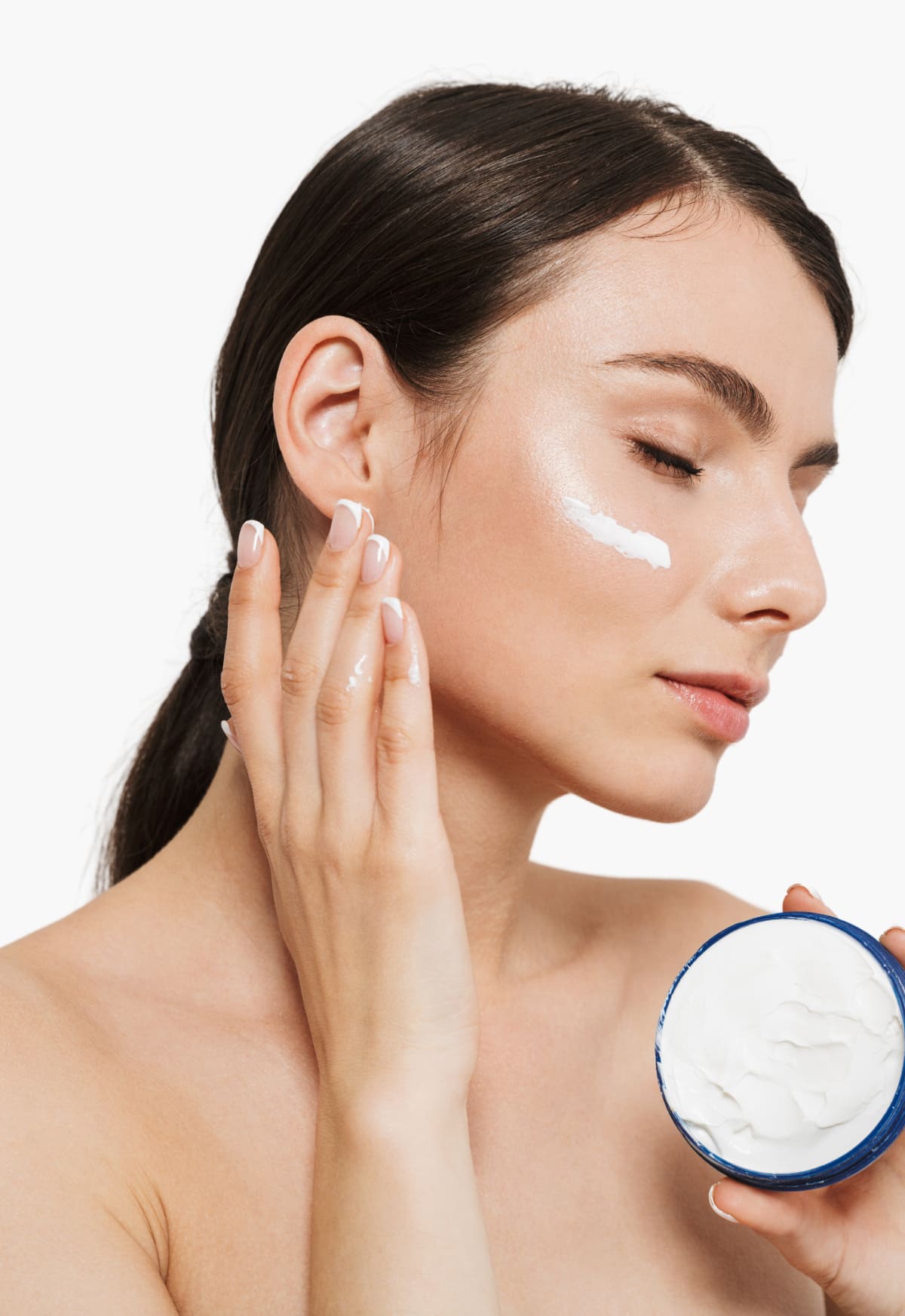
Willow bark extract is widely heralded for its skin-loving benefits, particularly due to its anti-inflammatory properties and antioxidants. Often found in skincare products as a natural alternative to salicylic acid, this extract can soothe your skin, reduce the appearance of redness and blemishes, and provide gentle exfoliation.
Whether your skincare regimen is minimalist or complex, understanding how willow bark extract works can be a game changer for your skin’s appearance and health.
For ages, willow bark has been utilized for its medicinal properties, and now, it’s making a mark in the skincare industry. The extract is derived from the bark of willow trees, and it’s packed with salicin—a compound that, when applied topically, can help with a variety of skin concerns.
By including products with willow bark extract for skin into your routine, you’re harnessing the power of nature to combat inflammation and free radical damage, clearing the way for skin that feels refreshed and looks radiant.
Key Takeaways
- Willow bark extract provides anti-inflammatory benefits and antioxidants for skin health.
- Salicin from willow bark is effective in soothing skin and providing gentle exfoliation.
- Including willow bark extract in skincare routines can help enhance skin appearance.
Willow Bark Extract For Skin: The 5 Benefits
Historically, willow bark has been used across Europe and Asia for its therapeutic properties. The use of willow bark dates back to the time of Hippocrates when chewing on the bark was a common treatment for reducing fever and pain. This practice was due to the presence of salicin, the precursor to aspirin.
Willow bark extract is rich in bioactive compounds. Beyond salicin, you’ll find tannins, flavonoids, and phenolic acids—these substances work together to provide potent antioxidant and anti-inflammatory benefits. Here’s a quick breakdown:
- Salicin: Converts to salicylic acid in your body and helps with exfoliation and acne treatment.
- Tannins: Offers astringent properties, which can tighten skin.
- Flavonoids & Phenolic Acids: Work to strengthen the skin’s defenses against free radical damage.
Particularly notable is the salix alba, or white willow, whose bark is a commonly used extract in skincare formulations. It’s highly valued for its antioxidant activity, helping to keep your skin looking youthful and radiant and retaining moisture, allowing the skin to stay healthy and hydrated.
Let’s dive a little deeper into the benefits of willow bark for the skin:
Anti-Aging Effects
Your skin’s battle against aging might just get easier with willow bark extract. It is rich in antioxidants that help fend off free radical damage, which can lead to premature aging. Regular incorporation into your skincare routine can reduce the appearance of wrinkles and fine lines, making willow bark an ally in maintaining youthful-looking skin.
Acne And Pore Management
If you’re grappling with acne or oily skin, willow bark extract can be a game-changer. Thanks to salicylic acid, a natural exfoliant derived from willow bark, it works to unclog pores, minimize blackheads, and combat excess oil that often leads to breakouts. Integrating this botanical power into your daily regime can help promote clearer and well-balanced skin.
Soothing Sensitive Skin
Are you struggling with sensitive skin issues like eczema or rosacea? Willow bark’s anti-inflammatory properties can offer relief. By mitigating irritation and redness, it nurtures the skin’s natural barriers, offering moisturizing benefits without the harshness. This makes it a suitable addition for those with allergies and sensitivities, aiming for a calmer and more comfortable skin feel.

Willow Bark Extract vs. Salicylic Acid
Willow bark extract and salicylic acid are related substances often used in skincare, particularly in products that treat acne. The primary similarity between the two is that willow bark extract contains salicin, a precursor to salicylic acid. When applied topically, salicin can be converted to salicylic acid, known for its exfoliating and acne-fighting properties.
However, there are notable differences between willow bark extract and salicylic acid:
- Source: Salicylic acid is a beta hydroxy acid (BHA) found in the bark of the willow tree, but it is often synthesized for use in skincare products. On the other hand, willow bark extract is a natural extract from the bark of the willow tree that contains salicin[1].
- Potency: Salicylic acid is known for its ability to penetrate the skin and exfoliate inside the pores, making it highly effective for treating acne. Willow bark extract is generally considered to be less potent because it contains salicin, which needs to be converted into salicylic acid by the skin, potentially making it less effective in comparison[2].
- Irritation Potential: Willow bark extract is often touted as a gentler alternative to salicylic acid. Because it is less potent, it may be less likely to irritate, making it suitable for people with sensitive skin. Salicylic acid, being more potent, can sometimes cause dryness or irritation if overused or used by those with sensitive skin[2].
- Efficacy: While both ingredients can treat acne, salicylic acid is a more direct and potent exfoliant. It is widely recognized for its effectiveness in treating acne and exfoliating the skin, whereas willow bark extract’s efficacy can be more variable and may not provide the same level of exfoliation or acne treatment[3].
Incorporating Willow Bark Extract Into Skincare
Willow bark extract, a natural source of salicin, offers gentle exfoliation and is beneficial for various skin types, including sensitive skin. It can enhance your skincare routine by addressing issues like dryness and aging. Here’s how you can effectively integrate this potent extract into your regimen.
Selecting The Right Products
When choosing products with willow bark extract, consider your skincare goals. For exfoliation, look for a toner or serum that highlights willow bark as a key ingredient. Those aiming for moisturizing and anti-aging benefits may opt for a moisturizer or cleanser that combines willow bark with hydrating components.
- For oily and acne-prone skin: Select a cleanser with willow bark extract to help control sebum and unclog pores. My favorite options are Boscia Clear Complexion Cleanser and 100% Pure Tea Tree & Willow Clarifying Cleanser.
- For sensitive skin: A toner featuring willow bark can provide gentle exfoliation without irritation. My favorite options are Ren Ready Steady Glow Daily AHA Tonic and COSRX BHA Blackhead Power Liquid.
- For dry skin: Look for moisturizers that contain willow bark and additional hydrating ingredients to combat dryness. My favorite option is Belif Problem Solution Moisturizer.
The Best Products With Willow Bark Extract
Application and Usage Tips
Incorporate willow bark extract into your skincare routine thoughtfully:
- Test the Product: Conduct a patch test to ensure you don’t have a sensitivity.
- Follow Directions: Use the product as directed, typically once or twice daily.
- Layer Properly:
- Apply thin, liquid products like toners after cleansing.
- Follow with serums, and lock in with moisturizers.
- Consistency Is Key: To see ongoing benefits, use your willow bark extract products consistently as part of your daily routine.
Side Effects of Willow Bark Extract
Remember, while willow bark extract is gentle and generally low-risk, every skin type is unique, and so willow bark extract can cause irritation and allergic reactions. Monitoring how your skin responds will help you adjust usage for the best results.

Conclusion On Willow Bark Extract For Skin
In a world of endless skincare options, this isn’t just another trend; it’s like the cool older sister who’s been keeping her beauty secrets on the down low. Willow bark extract is the real deal, offering gentle exfoliation, calming vibes, and a dash of antioxidants for that lit-from-within glow.
Whether you’re battling breakouts, seeking that dewy look, or just want to level up your skincare game, this botanical wonder has your back. It’s like giving your skin a ticket to the natural beauty party it deserves.
